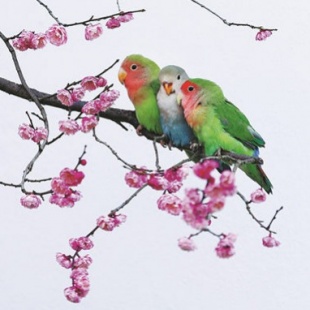A time of thunder and renewal


Folklore in the north of China has it that Empress Wu Zetian of the Tang Dynasty (618-907) offended the Jade Emperor so that he banned rainfall for three years. Soon one of the dragon kings that were in charge of rain, hearing people weeping and seeing people dying of famine, defied the order and was confined under a mountain.
The imprisonment would not end until gold beans cracked. Trying to save the kind dragon king, people looked around for gold beans. By the Eryueer of the next year, when they were tedding corn kernels, they found they looked like gold beans and would crack if heated. Then people all fried corn kernels and presented them on altars to the Jade Emperor. The dragon king was released and resumed his job. As a tradition, in the north, people ate popcorn on Eryueer.
Since insects appeared, it was also a time that reminded people that harmful insects such as centipedes and scorpions could enter dwellings, so they needed to light a fire to illuminate walls and beams to find them and get rid of them.
As time moved on, especially when people relied more on science and technology, many customs were forgotten. Today, many people celebrate Eryueer by going to the hairdressers because they choose not to cut their hair in the first lunar month or else their maternal uncles would experience misfortune.
For some, traditional practices on Jingzhe or Eryueer have become a connection with their childhood memories which urge them to reflect on their current life.
When Jia Nan, 43, was a child, she spent most time with her grandmother in a town in the western part of Northeast China's Liaoning province. She remembers, her grandmother would tell her the origins of related rituals and their meanings, either for blessings or to prevent misfortune.
Born in 1920, the grandmother believed all her life that with a pious heart, prayers would come true, Jia says.




































